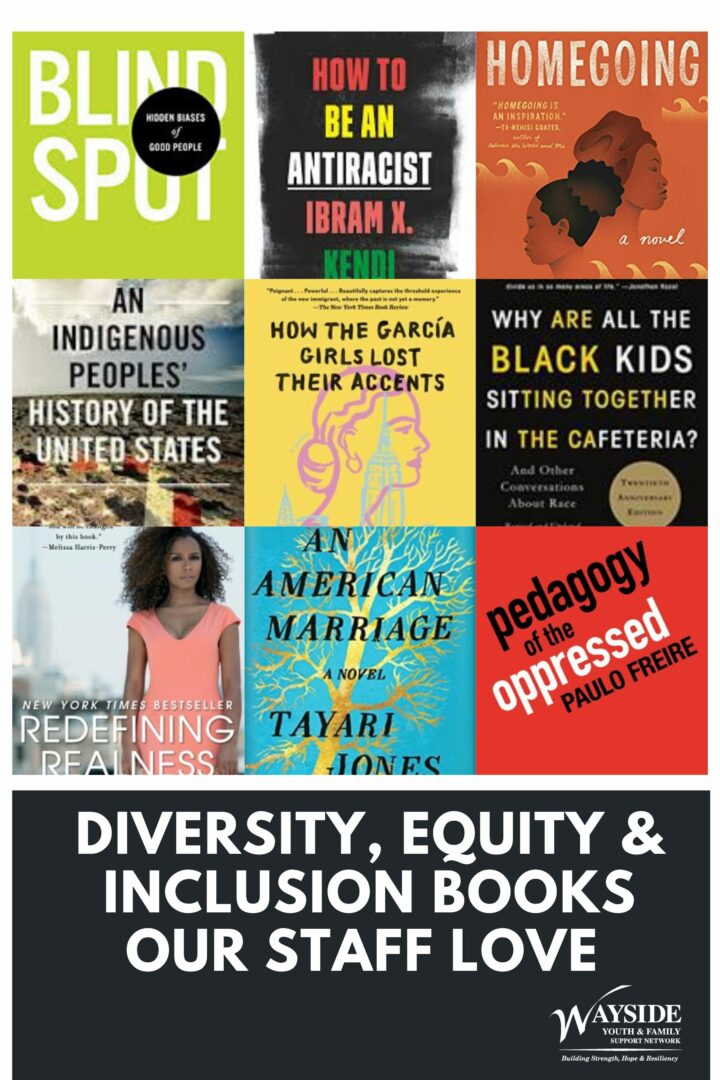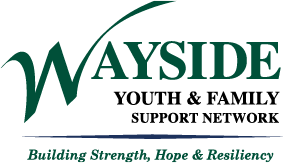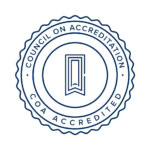16 Diversity, Equity & Inclusion Books Our Staff Love

Wayside’s Diversity, Equity and Inclusion (DEI) Committee is constantly exploring new ways to fulfill our agency’s mission of being anti-racist and inclusive. It’s a constant learning process as we work to promote our DEI principles and engage 500-employees across 19 sites. Our committee shared some of their top book picks that inform their work to understand one another, acknowledge hidden biases and challenge racist systems and behaviors.
Staff Recommendations:
Taiany Goulart, site manager, Wayside Medford
How to Be an Antiracist by Dr. Ibram X Kendi
So You Want to Talk About Race by Ijeoma Oluo
Pedagogy of the Oppressed by Paulo Freire
Carlton, Wayside DEI consultant
An Indigenous Peoples’ History of the United States by Roxanne Dunbar-Ortiz
A People’s History of the United States by Howard Zinn
Jodie Nierintz, senior program director, Wayside Milford
An American Marriage by Tayari Jones
Homegoing by Yaa Gyasi
Between the World and Me by Ta-Nehisi Coates
Fredrick Mann, Wayside clinician
Redefining Realness: My Path to Womanhood, Identity, Love, and So Much More by Janet Mock. “Mock’s Story of growing up in California and Hawaii as a low-income trans girl of color.”
Hunger: A Memoir of (My) Body by Roxane Gay. “Roxane Gay has written with intimacy and sensitivity about food and bodies, using her own emotional and psychological struggles as a means of exploring our shared anxieties over pleasure, consumption, appearance, and health.”
Talking to Strangers by Malcolm Gladwell. “This book looks at the ways we do harm by failing to understand one another, a problem Gladwell investigates through the child-abuse scandal involving Penn State assistant football coach Jerry Sandusky, the trial of Amanda Knox, the suicide of Sylvia Plath, the deceptions of financier Bernie Madoff and the TV, and more.”
Blindspot: Hidden Biases of Good People by Mahzarin R. Banaji and Anthony G. Greenwald. “This book explores hidden biases that we all carry from a lifetime of experiences with blind spot cover social groups – age, gender, race, ethnicity, religion, social class, sexuality, disability status, or nationality.”
Other recommendations:
Invisible Man by Ralph Ellison
How the Garcia Girls Lost Their Accents by Julia Alvarez
Why Are All the Black Kids Sitting Together in The Cafeteria by Beverly Tatum
On the Other Side of Freedom: The Case For Hope by DeRay Mckesson

